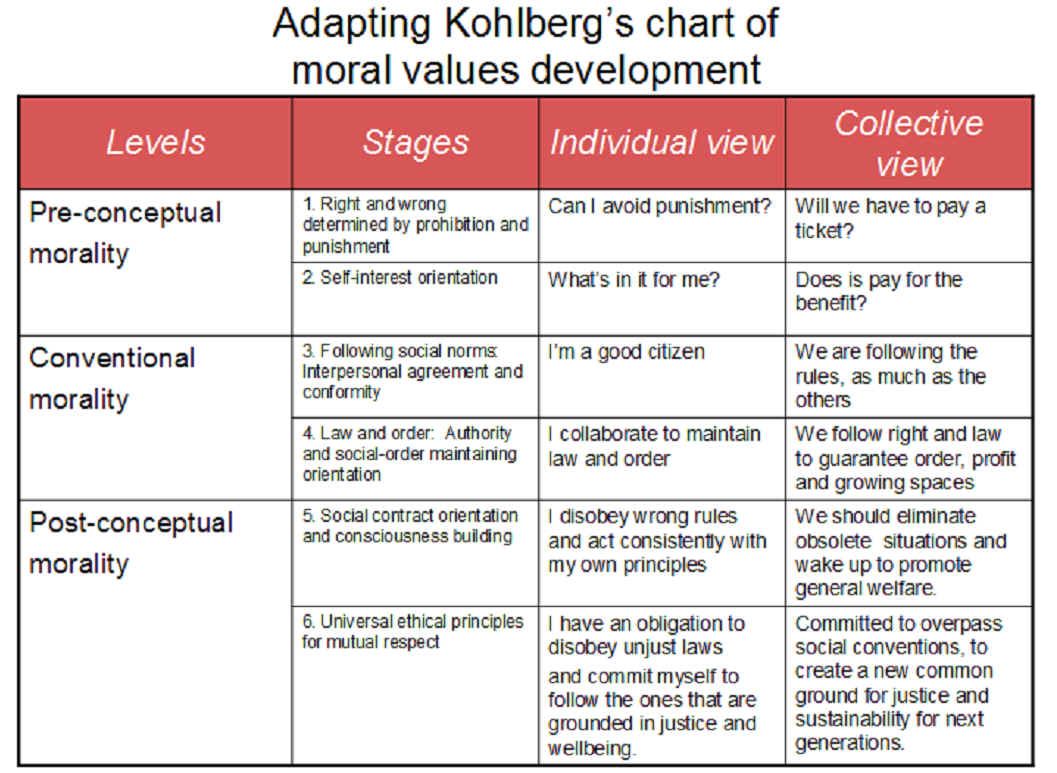Moral Development – Psychology Notes – For W.B.C.S. Examination.
নৈতিক বিকাশ – মনোবিজ্ঞান নোট – WBCS পরীক্ষা।
One of Kohlberg’s best known experiments is known as the Heinz Dilemma. In this experiment, Kohlberg presented a story about a man named Heinz.Continue Reading Moral Development – Psychology Notes – For W.B.C.S. Examination.
Heinz’s wife had a form rare cancer and was dying. A doctor told Heinz that a local chemist had invented a new drug that might save his wife. Heinz was very happy to hear this and went to talk to the chemist. When Heinz saw the price tag of the new drug, he was devastated because there was no way he could afford the drug. Heinz also knew that the price was ten times of the cost of the drug so the chemist was making a big buck from this drug.
Heinz tried his best to borrow money from his friends and family, but the money was still not enough. He went back to the chemist and begged the chemist to lower the price. The chemist refused to do that. Heniz knew that his wife would die without this new drug, so he broke into the chemist’s office that night and stole the drug.After telling Heinz’s story to children in various age groups, Kohlberg asked them what Heinz should do. Based on the children’s responses, Kohlberg classified their moral reasoning into three levels, each of which contains two distinct substages:
- Pre-conventional Level
- Obedience
- Self-interest
- Conventional Level
- Conformity
- Law and order
- Post-conventional Level
- Social contract orientation
- Universal human ethics
Age ranges are considerably more vague in the Kohlberg’s stages than in the Piaget stages, as children vary quite significantly in their rate of moral development.
The Pre-conventional Level
The pre-conventional stage is associated with the first two Kohlberg’s stages of moral development: Obedience and Self-interest.
At this level, children are only interested in securing their own benefits. This is their idea of morality. They begin by avoiding punishment, and quickly learn that they may secure other benefits by pleasing others. No other ethical concepts are available to children this young.
When being asked what Heinz should do, children at this level of moral development may answer:
- He shouldn’t steal the drug because it’s bad to steal.
- He should steal the drug because the chemist is charging too much.
- He should steal the drug because he’ll feel good that he saves his wife.
- He shouldn’t steal the drug because he’ll end up in prison.
These Kohlberg stages are parallel to Piaget’s sensorimotor stage – for children whose conceptual framework don’t extend beyond their own senses and movements, the moral concepts of right and wrong would be difficult to develop.
The Conventional Level
According to Kohlberg’s Theory of Moral Development, the conventional level is associated with Conformity and Law and Order. This is the stage at which children learn about rules and authority. They learn that there are certain “conventions” that govern how they should and should not behave, and learn to obey them.
At this stage, no distinction is drawn between moral principles and legal principles. What is right is what is handed down by authority, and disobeying the rules is always by definition “bad.”
The Post-conventional Level
The post-conventional level is associated with these Kohlberg’s stages of moral development: Social contract orientation and Universal human ethics.
At this level, children have learned that there is a difference between what is right and what is wrong from a moral perspective, and what is right and what is wrong according to rules. Although they often overlap, there are still times when breaking a rule is the right thing to do.
When being asked what Heinz should do, children at this level of moral development may answer:
- He should steal the drug because everyone has a right to live, regardless of the law.
- He shouldn’t steal the drug because the chemist deserves to get paid for his effort to develop the drug.
- He should steal the drug because saving life is more important than anything else.
- He shouldn’t steal the drug because others also have to pay for the drug. It’s only fair that he pays for it as well.
Please subscribe here to get all future updates on this post/page/category/website


 +919674493673
+919674493673  mailus@wbcsmadeeasy.in
mailus@wbcsmadeeasy.in







































































































